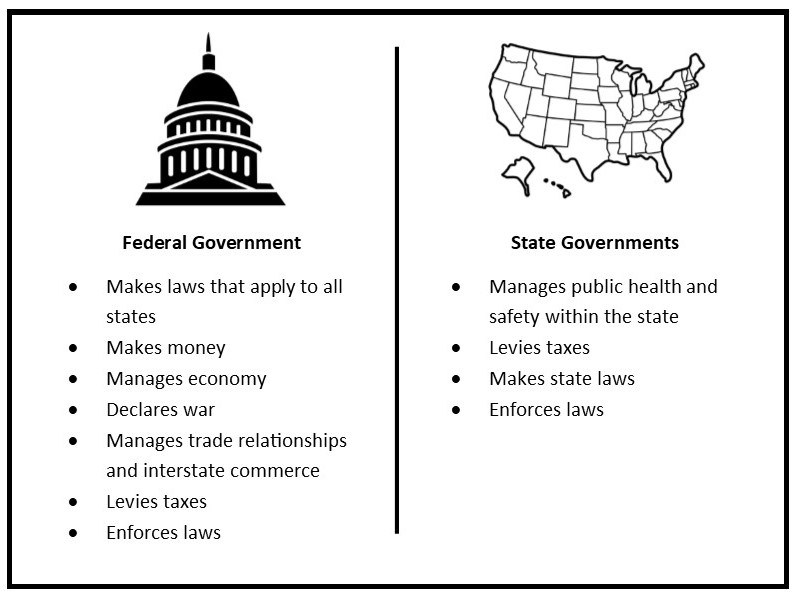State and Federal Governments: Roles of the Federal Government and State Governments in the Policymaking Process
What are the roles of the federal government and state governments in the policymaking process?
Both the state and the federal governments play a very important role in the decision making process. The Federal government takes the role of enacting public policies for purposes of regulating different businesses and industries (Chatfield, & Reddick, 2018). The policies are also enacted to facilitate the function of the city and state governments, protect the vulnerable population and protect the citizens both at home and abroad through appropriate funding programs (Sparer, 2020). On the other hand, state governments play the important role of prescribing and directing policies on taxation, education, commerce, and education amongst other policies that address different social issues within their jurisdiction.
Describe the role of committees, and analyze similarities and differences between these roles
Senate or federal committees play the role of monitoring the progressive government operations, assessing and identifying all the issues that require legislative review, and obtaining the right information to guide the government in making the right decisions (Chatfield, & Reddick, 2018). On the other hand, state committees are responsible for doing research and making decisions on their specific states based on the recommendations of the federal committees. Despite both serving for the common good of their respective populations, their main different is that senate committees highlight federal issues while state committees highlight state issues (Sparer, 2020).
How does the composition of congress and state legislatures influence the creation of public health policy?
The role of state legislatures entail doing research, writing, and passing proposed legislation while the congress is responsible for making all the laws, regulates foreign and interstate commerce, and declares was. The congress is also responsible for controlling both spending and taxing policies. As such, the composition of the state and congress legislatures determines the kind of laws proposed, researched and passed (Chatfield, & Reddick, 2018). If the composition of either the two is dominated by members from the ruling party, then passing health related policies is always easy as opposed to when the composition is made by the opposition. For example, the development of Obama Care was easily done because majority of the legislatures were from the ruling party, making the proposal to go through all the processes with very minimal resistance. The result was the enactment of the Obama Care that proved successful later upon implementation. Notably, the case would have been different if the composition of the legislature was from dominated by the opposition party.







